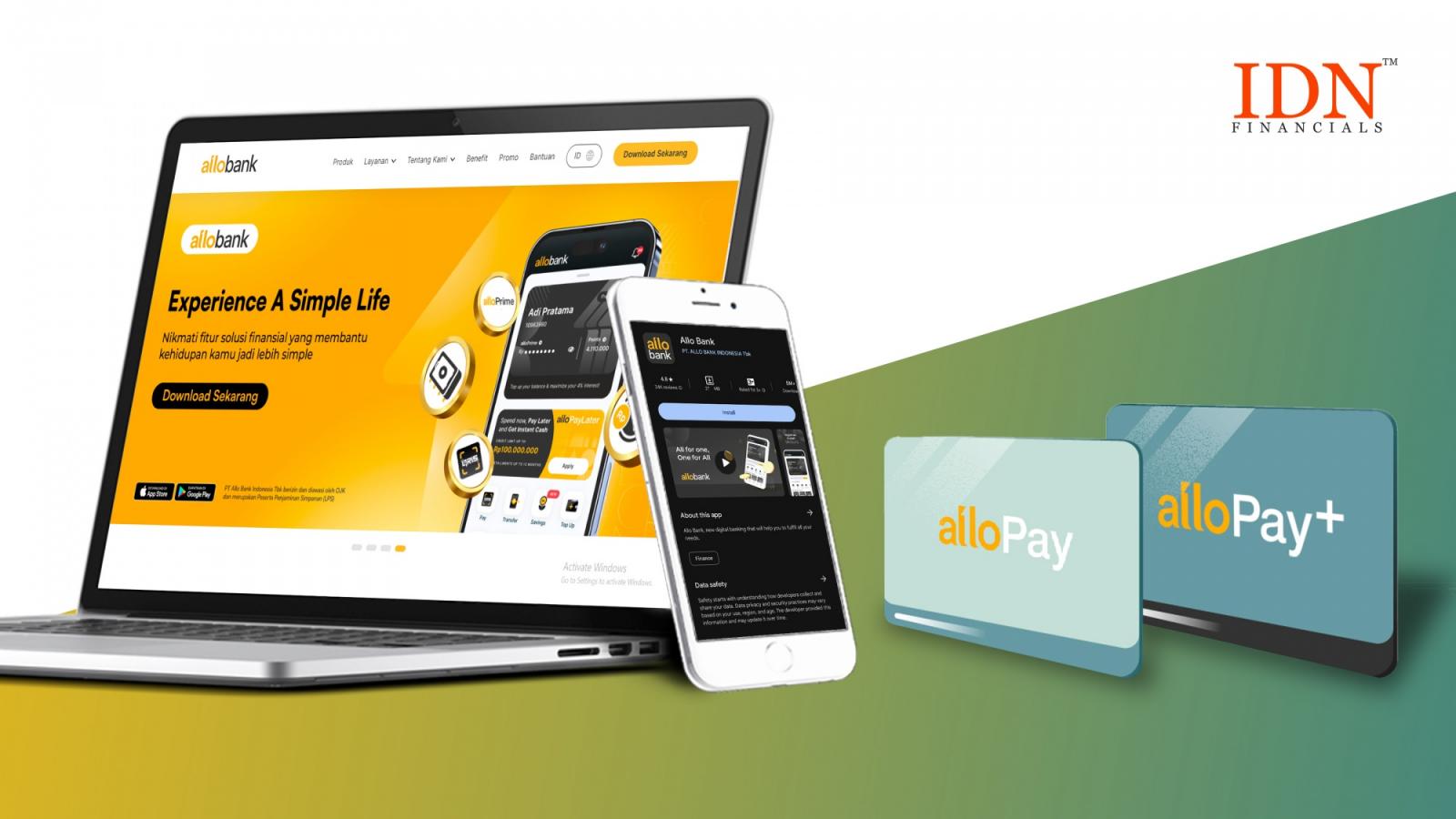Not only for Bitcoin, but also for Ethereum (ETH), there are numerous wallets available. Over the past few years, several Ethereum wallets have been introduced, each differing in features and security levels. For beginners, keeping track of the many options can be overwhelming.
To simplify this, we have created this Ethereum wallet guide, which highlights the best Ethereum wallets. Before introducing individual wallets, it is crucial to understand the fundamental differences between them. The most basic distinction is between:
Cold wallets Hot wallets
The key factor differentiating these wallets is internet connectivity. While cold wallets are not connected to the internet, hot wallets maintain a continuous connection. Cold wallets offer superior security as they are protected from hacking attempts, whereas hot wallets are more vulnerable to cyberattacks.
Because of this, large cryptocurrency exchanges and investment firms store the majority of customer funds in cold wallets rather than hot wallets. This is a best practice that individual investors should also follow.
For retail users, cold wallets include hardware wallets and paper wallets. In contrast, hot wallets are further divided into the following categories:
What is a Private and Public Key?
The terms Private Key and Public Key originate from asymmetric cryptography, a technology used in blockchain security.
A private key is a randomly generated string that provides complete ownership of your Ethereum funds. It must never be shared, as anyone who obtains it can withdraw your ETH.
A public key (wallet address) is derived from the private key and can be shared freely. It allows others to send ETH to your wallet. Unlike the private key, the public key is hashed and irreversible, ensuring security.
Types of Hot Wallets
Hot wallets are always connected to the internet, meaning your private keys may be exposed. The three main types are:
Ethereum Desktop WalletsEthereum Mobile WalletsEthereum Online Wallets (Web Wallets)
Choosing the Right Ethereum Wallet
Before you purchase Ethereum (click here for our guide), it is essential to decide where you will store it. Selecting the right wallet can help you save fees and ensure security.
⚠ Important Advice:
Storing ETH in an exchange wallet (or broker wallet) is the least secure option. When you store ETH on an exchange, you do not control your private key, meaning you do not truly own your ETH.
Our Strong Recommendation:
Take control of your assets by using an external wallet, such as a hardware wallet or a self-hosted software wallet.
Ethereum hardware wallets


Hardware wallets are widely regarded as the most secure method for storing Ethereum (ETH) and other cryptocurrencies. These physical devices keep your private keys offline, significantly reducing the risk of online threats such as hacking and phishing attacks. Each transaction requires physical confirmation on the device, ensuring that unauthorized access is virtually impossible.
In the event of physical theft, hardware wallets offer robust security features. Most devices require PIN authorization and support two-factor authentication, making unauthorized access exceedingly difficult.
Investing in a hardware wallet is advisable, especially if you hold a substantial amount of Ethereum. The cost of a reliable hardware wallet is relatively low compared to the potential loss from inadequate security. Below, we’ve summarized the advantages and disadvantages of hardware wallets:
Advantages of Ethereum Hardware Wallets:✅ Highest security standard ✅ Offline storage of private keys ✅ Support for multiple cryptocurrencies ✅ Regular updates from reputable manufacturers ✅ Physical confirmation required for each transaction ✅ Excellent customer support from leading providers
Disadvantages of Hardware Wallets:❌ No deposit insurance as offered by some brokers, e.g., eToro ❌ Responsibility for coin storage rests solely with the user (which can also be an advantage)
Below are some of the top Ethereum hardware wallets as of 2025:
1. Ledger Stax
The Ledger Stax is Ledger’s premium hardware wallet, featuring a curved E-Ink touchscreen and a sleek design. Developed in collaboration with Tony Fadell, co-creator of the iPod, the Ledger Stax offers an intuitive user experience. It supports over 5,500 cryptocurrencies, including Ethereum, and integrates seamlessly with the Ledger Live app for real-time portfolio management. The device connects via USB-C and Bluetooth, providing flexibility for both desktop and mobile use. Its robust security features ensure that your private keys remain offline and protected.
2. Ledger Nano X
The Ledger Nano X is a versatile hardware wallet known for its Bluetooth functionality, allowing users to manage their assets on-the-go via the Ledger Live mobile app. It supports over 5,500 cryptocurrencies, including Ethereum, and can store up to 100 applications simultaneously. The device features a larger screen compared to its predecessor, the Nano S, enhancing usability. Security remains paramount, with private keys stored securely offline and transactions requiring physical confirmation on the device.
3. Trezor Model T
The Trezor Model T is a flagship hardware wallet from SatoshiLabs, featuring a full-color touchscreen for intuitive navigation. It supports over 1,000 cryptocurrencies, including Ethereum, and offers advanced security features such as a MicroSD card slot for data encryption. The device uses open-source firmware, allowing for transparency and community verification. Users can manage their assets through the Trezor Suite app, which provides a comprehensive interface for portfolio management.
4. Trezor Model One
The Trezor Model One is the original hardware wallet introduced by SatoshiLabs, offering a reliable and affordable solution for securing cryptocurrencies. It supports a wide range of coins, including Ethereum, and features a simple design with two physical buttons for navigation. The device employs robust security measures, including PIN protection and passphrase support. Users can access their assets via the Trezor Suite app or compatible third-party applications.
5. BitBox02
The BitBox02 is a hardware wallet developed by Shift Crypto, designed with a focus on simplicity and security. It supports multiple cryptocurrencies, including Ethereum, and features a touch slider for easy navigation. The device includes a MicroSD card for effortless backup and recovery. Its firmware is open-source, allowing for community scrutiny and transparency. Users can manage their assets through the BitBoxApp, which offers a user-friendly interface for both beginners and advanced users.
Key Considerations for Hardware Wallets:
SummaryHardware wallets provide the highest level of security for storing Ethereum (ETH) by keeping private keys offline and requiring physical confirmation for transactions. Investing in a reputable hardware wallet is a prudent decision to safeguard your digital assets effectively. Always purchase hardware wallets directly from official sources to avoid counterfeit products. Regularly update your device’s firmware to benefit from the latest security enhancements. Ensure you securely back up your recovery seed, as it is essential for recovering your funds if the device is lost or damaged.
Ethereum desktop- and mobile Wallets
As the name suggests, desktop wallets are programs installed on a computer to manage Ethereum. Unlike online wallets, desktop wallets store private keys on your device, rather than on a company’s server. This means you retain full control over your ETH. However, since your PC is likely connected to the internet, it is more vulnerable to hacking attempts than a hardware wallet. Still, desktop wallets offer significantly better security than online and web wallets.
Desktop wallets are the best free option for storing Ethereum securely. To help you choose, we’ve listed the best Ethereum desktop wallets. But first, here’s an overview of their pros and cons compared to other wallet types:
Advantages of Ethereum desktop wallets: ✅ Full control over private keys
✅ Free to use with no purchase cost
✅ Regular updates from developers
✅ Manual transaction confirmation required
✅ Higher security than online wallets
Disadvantages of Ethereum desktop wallets:❌ Less security than hardware wallets (more vulnerable to hacking)
❌ Careful selection needed—some wallets may be scams
Mobile Ethereum Wallets
Mobile wallets offer convenient access to Ethereum, allowing users to make transactions anytime, anywhere. However, smartphones are prime targets for hackers. Only hardware wallets provide full protection against cyberattacks. Below is a comparison of the pros and cons of Ethereum mobile wallets:
Advantages of Ethereum mobile wallets: ✅ Access anytime, anywhere with internet connectivity
✅ Supports multiple cryptocurrencies, not just Ethereum
✅ User-friendly interface—ideal for beginners
✅ Customer support provided by most wallet providers
Disadvantages of Ethereum mobile wallets:❌ Weaker security than hardware wallets
❌ No deposit insurance, unlike eToro Wallet
❌ Vulnerable to hacking or phishing attacks
Best Ethereum Desktop and Mobile Wallets
Since most wallet providers offer both desktop and mobile versions, we’ve combined them into a single ranking:
Guarda WalletAtomic WalletJaxx LibertyExodus WalletCoinomi WalletEdge Wallet1. Guarda Wallet

Guarda Wallet supports 50+ cryptocurrencies, including Ethereum. It’s available as a desktop and mobile wallet, as well as a Chrome browser extension. A web version is also available, but it offers the lowest security.
✅ Private keys are stored on your device, not on a company server
✅ Fast and easy setup—perfect for beginners
SecurityPrivate keys are stored locally, offering good security. However, avoid using the web version for large amounts of ETH. Supported cryptocurrenciesGuarda supports 50+ cryptocurrencies, including Ethereum. Transparency & FeesNo fees except standard Ethereum network fees.
✅ Download Guarda Wallet here.
2. Atomic Wallet

Atomic Wallet is a multi-asset wallet that supports 500+ cryptocurrencies, including Ethereum. A standout feature is Atomic Swaps, allowing direct crypto-to-crypto swaps without intermediaries.
✅ No third-party access—private keys stay on your device
✅ Available on: Windows, Mac, Linux, Android, iOS
SecurityAll transaction data is encrypted, and private keys remain on the user’s device. Supported cryptocurrencies500+ cryptocurrencies, including all ERC-20 tokens.
✅ Download Atomic Wallet here.
3. Jaxx Liberty Wallet

Jaxx Liberty is a multi-currency wallet that supports 80+ cryptocurrencies, including Ethereum. It’s developed by Ethereum co-founder Anthony Di Iorio.
✅ Private keys stored locally—not on external servers
✅ Desktop & mobile versions available
SecurityPrivate keys never leave your device. Offers backup & restore options.
✅ Download Jaxx Liberty Wallet here.
SummaryEthereum desktop and mobile wallets offer better security than online wallets but less security than hardware wallets.
Always keep private keys secure, use strong passwords, and enable two-factor authentication when possible. 4. Exodus Wallet

Exodus Wallet is a multi-asset wallet that supports 100+ cryptocurrencies. It is known for its user-friendly interface and built-in exchange feature.
✅ Built-in portfolio tracker—manage your Ethereum and other assets in one place
✅ Exchange feature—integrates with ShapeShift for in-wallet trading
✅ Desktop & mobile versions available (Windows, Mac, Linux, iOS, Android)
SecurityPrivate keys are stored locally on your device. However, the wallet lacks two-factor authentication (2FA), which is a security drawback. Supported cryptocurrencies100+ cryptocurrencies, including Ethereum, Bitcoin, Litecoin, Binance Coin, XRP, and more. Transparency & FeesExodus is not open-source, meaning users must trust the developers. The wallet does not charge fees for holding assets, but ShapeShift exchanges have a variable fee (typically 2–5%).
✅ Download Exodus Wallet here.
5. Coinomi Wallet

Coinomi Wallet is a multi-currency wallet that supports 275+ cryptocurrencies. It offers strong privacy features and supports direct crypto trading.
✅ Integrated exchange—trade Ethereum and other cryptocurrencies directly in the app
✅ IP address encryption—adds an extra layer of privacy
✅ Desktop & mobile versions available (Windows, Mac, Linux, iOS, Android)
SecurityCoinomi encrypts IP addresses to enhance privacy. However, the wallet does not offer two-factor authentication (2FA). Supported cryptocurrencies275+ cryptocurrencies, including Ethereum, Bitcoin, Litecoin, and ERC-20 tokens. Transparency & FeesCoinomi was originally open-source but became closed-source in 2018. No fees for holding assets, but trading fees apply when using the built-in exchange.
✅ Download Coinomi Wallet here.
6. Edge Wallet

Edge Wallet is a mobile-only wallet with fiat integration, allowing users to buy Ethereum directly with USD, EUR, and other currencies.
✅ Fiat-to-crypto support—buy Ethereum using traditional money
✅ Multi-device support—access your wallet from multiple smartphones
✅ Available on Android & iOS
SecurityInstead of a traditional seed phrase, Edge Wallet uses a username and password system. Users can enable two-factor authentication (2FA), Touch ID, or PIN protection for added security. Supported cryptocurrencies20+ cryptocurrencies, including Ethereum, Bitcoin, Litecoin, Monero, Ripple (XRP), Bitcoin Cash, and more. Transparency & FeesFully open-source and reviewed by leading security experts. No fees for holding crypto, but trading fees apply when using fiat services.
✅ Download Edge Wallet here.
SummaryEthereum desktop and mobile wallets offer better security than online wallets but less security than hardware wallets.
To keep your ETH secure:
✔ Use strong passwords
✔ Enable two-factor authentication (2FA) when possible
✔ Store large amounts of ETH in a hardware wallet
✔ Always download wallets from official sources
Ethereum Online Wallets
Ethereum online wallets offer a fast and easy way to manage ETH compared to desktop wallets. The most common online wallets are exchange wallets, where users don’t have to install anything or worry about backups. However, these wallets require trust in the exchange to store funds securely in cold storage and prevent hacking attempts.
One of the biggest risks of exchange wallets is insider fraud or hacking—like the Mt. Gox hack, which resulted in the loss of 850,000 BTC. However, modern exchanges have improved security measures, making them safer than before. Still, exchange wallets lack the security of hardware wallets.
Besides exchange wallets, there are also Ethereum-specific online wallets like MyEtherWallet (MEW) and MetaMask. These wallets offer more control over private keys while still being accessible online.
Here’s a breakdown of the advantages and disadvantages of Ethereum online wallets:
Advantages of Ethereum Online Wallets:
✅ Access from anywhere with an internet connection
✅ Exchange wallets allow direct trading
✅ No installation required for exchange wallets
✅ Set withdrawal limits for security
✅ User-friendly interface—ideal for beginners
✅ Good customer support for most services
Disadvantages of Ethereum Online Wallets:
❌ Less security than hardware or desktop wallets
❌ Private keys are controlled by third parties in exchange wallets
❌ Higher risk of hacking or phishing attacks
❌ Some web wallets have turned out to be scams
Top Ethereum Online Wallets
MyEtherWallet (MEW) – Best Ethereum-specific online walletMetaMask – Best for accessing dApps and Web3Binance Web Wallet – Best for active traderseToro Wallet – Best for beginner investorsLitebit Web Wallet – Best for European users1. MyEtherWallet (MEW) – Best Ethereum-Specific Wallet

MyEtherWallet (MEW) is a popular non-custodial Ethereum wallet that provides an easy-to-use interface for managing Ethereum and ERC-20 tokens.
✅ No installation required—access via web browser
✅ Supports hardware wallets (Ledger, Trezor, KeepKey)
✅ Buy ETH directly via third-party partners
✅ Full control over private keys—keys are stored locally
SecurityMEW does not store private keys—they remain on the user’s device. However, users must be cautious of phishing attacks. Always ensure you are using the correct website. Supported CryptocurrenciesEthereum (ETH) and all ERC-20 tokens. Also supports Ethereum Classic (ETC).
✅ Visit MyEtherWallet here.
2. MetaMask – Best for dApps & Web3

MetaMask is a browser extension wallet that allows users to store ETH and interact with dApps. It is one of the most-used Web3 wallets, with over 10 million users.
✅ Works with Chrome, Firefox, Brave, and Edge
✅ Supports Ethereum & ERC-20 tokens
✅ Buy, send, and receive ETH easily
✅ Private keys stored locally in the browser
SecurityMetaMask stores private keys locally but does not offer 2FA. Browser wallets can be compromised, so always use strong passwords and seed phrase backups.
✅ Download MetaMask here.
3. Binance Web Wallet – Best for Active Traders

Binance is one of the largest cryptocurrency exchanges, offering a secure web wallet for ETH storage and trading.
✅ Supports 350+ cryptocurrencies
✅ Advanced security features (2FA, withdrawal whitelists)
✅ Instant trading from the wallet
SecurityBinance stores private keys on external servers, making it a target for hackers. However, most user funds are kept in cold storage, reducing risk.
✅ Register on Binance here.
4. eToro Wallet – Best for Beginner Investors

eToro Wallet is a regulated platform offering custodial storage for ETH. Unlike other web wallets, eToro provides deposit insurance, making it a safe option for beginners.
✅ Up to $20,000 deposit insurance
✅ Easy crypto-to-fiat conversions
✅ Ideal for beginners
SecurityFunds on eToro are insured, making it one of the most secure exchange wallets. However, CFD trading carries risks—always check the fee structures.
✅ Register on eToro here.
5. Litebit Web Wallet – Best for European Users

Litebit is a European crypto broker that provides an Ethereum web wallet. It is a regulated platform and a good option for European users looking for an easy way to store ETH.
✅ Regulated & secure platform
✅ Supports over 30 cryptocurrencies
✅ 2FA security measures
SecurityLitebit stores a majority of funds in cold wallets, making it safer than most exchange wallets. However, as with all exchange wallets, it’s recommended to move large holdings to an external wallet.
✅ Register on Litebit here.
Final Thoughts on Ethereum Online Wallets
While Ethereum online wallets offer convenience and accessibility, they also come with security risks. Exchange wallets are ideal for active traders, while Ethereum-specific wallets like MEW and MetaMask provide more control over private keys.
Here’s a quick comparison of the best Ethereum online wallets:
Wallet Best For Security Level Private Key Control Supports dApps Deposit Insurance
Ethereum online wallets provide convenience but come with security risks.
✔ Use hardware wallets for large ETH holdings
✔ Enable 2FA on exchange wallets
✔ Avoid storing ETH long-term on exchanges
✔ Always download wallets from official sources
Ethereum Offline Wallets / Ethereum Paper Wallets
Ethereum Paper Wallets
Ethereum Paper Wallets can be a very good option if you want to save ETH offline and don’t want to use a hardware wallet. They have a very good reputation in the crypto community. The reason is simple: because the password, address, and private key are “stored” on a piece of paper, they never come into contact with the internet, making them immune to hacking. However, to send transactions, you will need to import your paper wallet into a web or software wallet.
Ethereum Offline Wallets
Ethereum offline wallets are especially useful if you don’t plan to access your Ether (ETH) for a long time. You can store your Ethereum Paper Wallet in a safe place, such as a vault or deposit box. However, you should ensure that your PC and printer are free of viruses and malware when creating the wallet. This can be a potential weakness of the Ethereum Paper Wallet.
The advantages of Ethereum Paper Wallets: ✅ 100% offline storage—immune to online hacking
✅ Best suited for beginners—simple to create
✅ Easy and secure to generate
The disadvantages of Ethereum Paper Wallets: ❌ No deposit insurance, unlike exchange wallets (e.g., eToro)
❌ Storage of coins is your own responsibility, which can be risky
❌ Vulnerable to physical damage (fire, water, theft)
1. Best Ethereum Paper Wallet: MyEtherWallet
MyEtherWallet (MEW) allows you to print an Ethereum Paper Wallet securely. The website generates the Private Key and Public Key with one click. You can then print out this information and store it in a safe place, ensuring that no external hacker can gain access to your Ethereum.
Important Tips for Using Ethereum Paper Wallets:
Use a secure, offline computer when generating the wallet.
Ensure your printer is not connected to the internet while printing the wallet.
Never store digital copies (screenshots, PDFs, or emails) of your paper wallet.
Create multiple copies and store them in different secure locations.
Consider laminating your paper wallet to prevent physical damage.
SummaryEthereum Paper Wallets are a secure and cost-effective way to store Ethereum for long-term holding. However, it is crucial to ensure your computer is free of malware and Trojans when creating one.
Further Important Information on Ethereum Wallets
We have compiled the information to the best of our knowledge and experience. However, we always recommend conducting your own research and testing different wallets to find the best Ethereum wallet for your needs.
If you have any questions or suggestions about our Ethereum wallet review, feel free to leave us a comment. We’re happy to help!
If you found this guide useful, we would appreciate a positive review!






